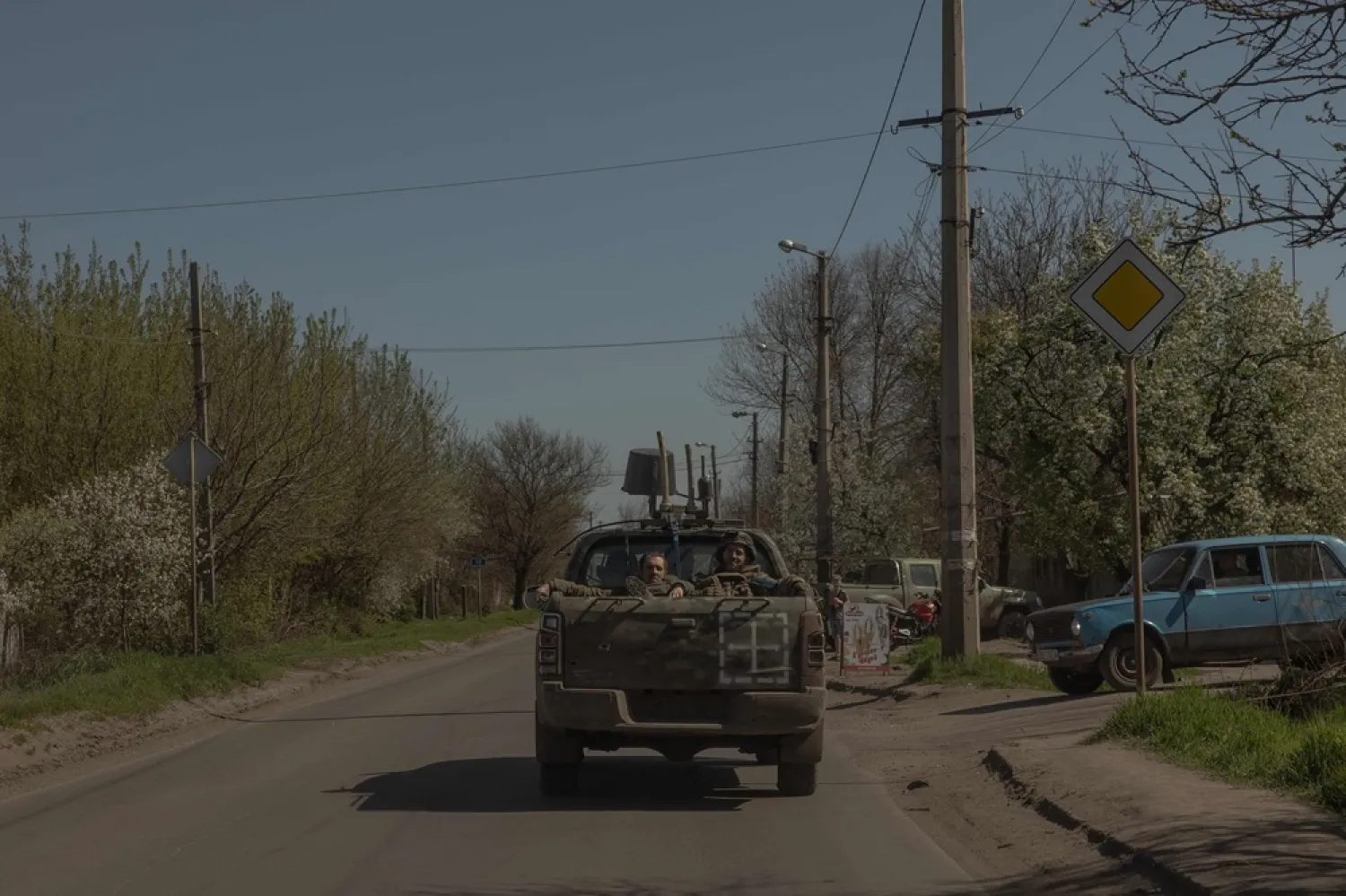Russia and Ukraine blamed each other on Sunday for breaking a one-day Easter ceasefire declared by President Vladimir Putin, with both sides accusing the other of carrying out hundreds of attacks.
Putin, who sent thousands of Russian troops into Ukraine in February 2022, ordered Russian forces to "stop all military activity" along the front line in the three-year-old war until midnight Moscow time (2100 GMT) on Sunday.
Ukrainian President Volodymyr Zelenskiy said Russia was pretending to observe the Easter ceasefire, but had in fact continued hundreds of artillery attacks on Saturday night, with more assaults on Sunday.
Russia launched 46 assaults from midnight until 4 p.m. local time (1300 GMT), including with heavy weapons, Zelenskiy wrote on the X social media platform.
"Either Putin does not have full control over his army, or the situation proves that in Russia, they have no intention of making a genuine move toward ending the war, and are only interested in favorable PR coverage," Zelenskiy posted.
Russia's Defense Ministry said Ukraine had broken the ceasefire more than 1,000 times, inflicting damage to infrastructure and causing some civilian deaths.
The ministry said Ukrainian forces had shot at Russian positions 444 times while it had counted more than 900 Ukrainian drone attacks, including attacks on Crimea and on the Russian border areas of the Bryansk, Kursk and Belgorod regions.
"As a result, there are deaths and injuries among the civilian population, as well as damage to civilian facilities," the ministry said.
Ukraine's military said earlier on Sunday that activity on the front line had decreased. Some Russian military bloggers also said frontline activity had declined substantially.
Reuters was unable to immediately verify the battlefield reports from either side.
The apparent failure to observe even an Easter ceasefire shows how hard it will be for US President Donald Trump to achieve his aim of clinching a lasting deal to end what he calls the "bloodbath" of the Ukraine war.
The US will walk away from efforts to broker a peace deal unless there are clear signs of progress soon, Trump and his secretary of state, Marco Rubio, said on Friday.
TRUMP'S PEACE PUSH
Trump, who says he wants to be remembered as a peacemaker, has repeatedly warned of the escalation risk of the war - which his administration now casts as a proxy conflict between the US and Russia, echoing Moscow's stance.
Last month, after Ukraine accepted Trump's proposal for a 30-day truce, Putin said crucial issues of verification had not been sorted out. Both Moscow and Kyiv have agreed to a moratorium on attacks on energy targets and at sea, which each accuses the other of breaking.
Zelenskiy reiterated that Kyiv was willing to extend the ceasefire for 30 days but said that if Russia kept fighting on Sunday, so would Ukraine.
"The Ukrainian army is acting – and will continue to act – in a fully symmetrical manner," he wrote on X.
Putin told his top general, Valery Gerasimov, to be ready to respond "in full" if Kyiv broke the truce.
Russia controls just under one-fifth of Ukraine, including Crimea, which Moscow annexed in 2014, and the regions of Luhansk, Donetsk, Zaporizhzhia and Kherson.
Putin, when announcing the ceasefire before heading to an Orthodox Easter service, said the truce would show whether or not Ukraine was ready or able to implement peace. Putin thanked Trump, Chinese President Xi Jinping and leaders from the BRICS group of emerging economies for attempts to mediate.
The European Union reacted cautiously to Putin's ceasefire declaration, saying Moscow could stop the war immediately if it wanted to.
UN spokesman Stephane Dujarric reiterated UN support "for meaningful efforts towards a just, lasting and comprehensive peace that fully upholds Ukraine's sovereignty, independence and territorial integrity".
Easter falls on the same day this year for Orthodox and Western churches, and Zelenskiy urged Ukrainians not to give up hope that peace will one day return.
"We know what we are defending. We know what we are fighting for," he said in a social media video, wearing a traditional Ukrainian embroidered shirt and standing in front of Saint Sophia Cathedral in Kyiv.









